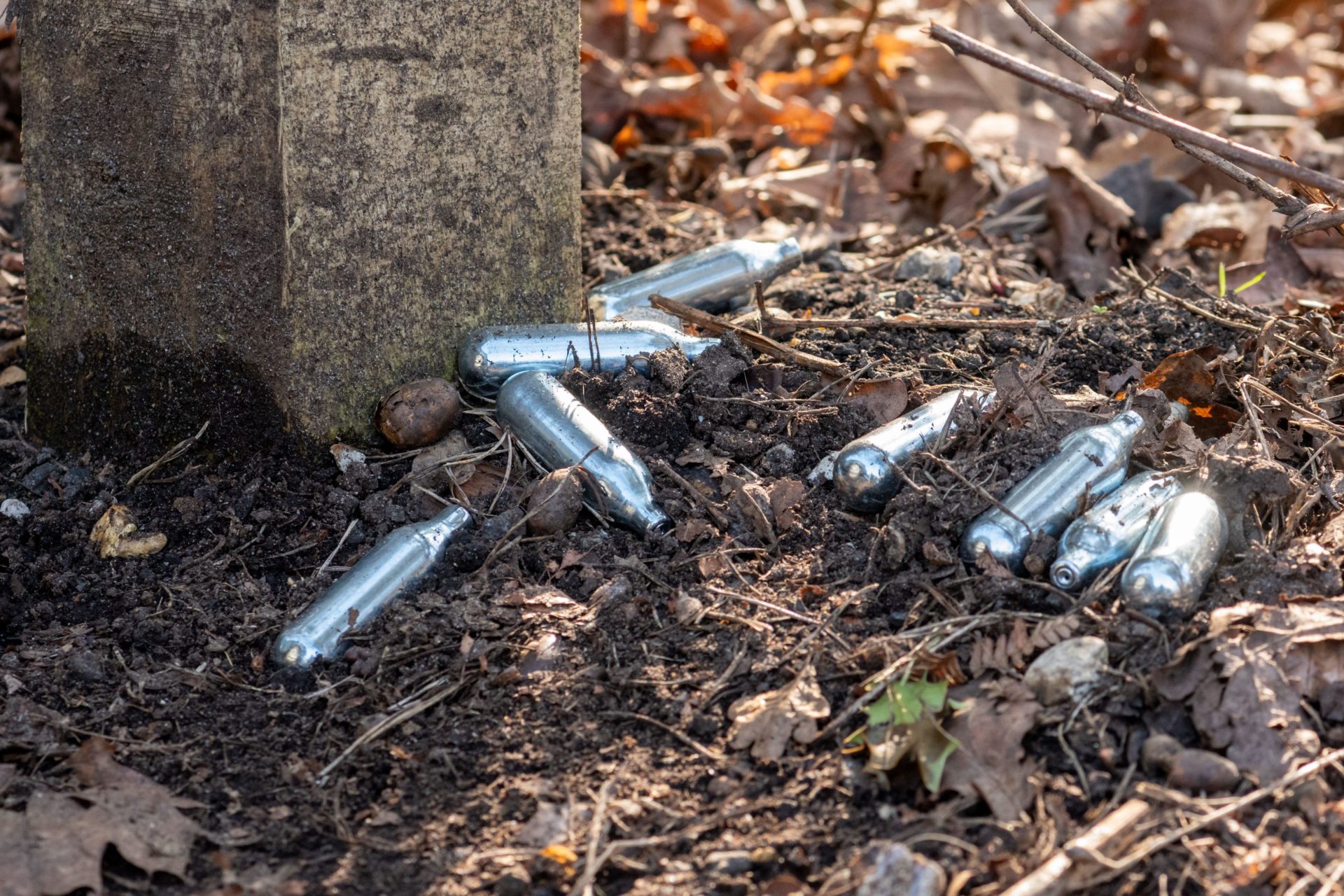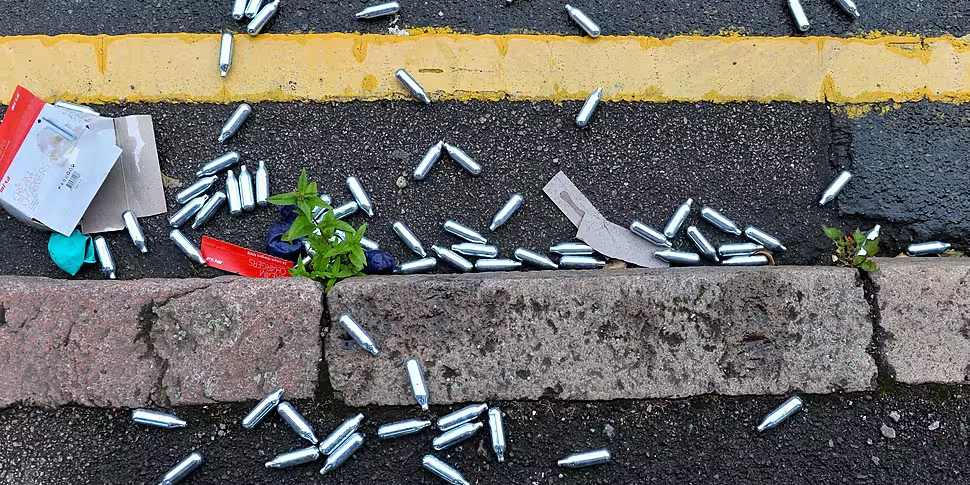While not yet addictive, laughing gas is on the rise among teenagers and causing a “real worry”.
Revenue seized €647,000 worth of nitrous oxide, commonly known as laughing gas, at Dublin Port last week.
While this product is legitimately used in the catering industry, there are "reasonable grounds for believing that the goods being imported are not intended to be utilised for legitimate purposes".
It is believed the gas is becoming popular among teenagers as a psychoactive substance.
Addiction expert Dr Garrett McGovern said he mainly specialises in adults, but he has seen a rise in laughing gas being used as a stimulant.
“It seems to be gaining popularity among adolescents, which is concerning,” he told Newstalk Breakfast.
“If you look at the treatment figures in recent years, the numbers have been extremely low.”
 Nitrous-oxide canisters
Nitrous-oxide canistersRegular use such as having laughing gas weekly isn’t common yet, so it’s “not really an addiction” yet – but Dr McGovern said there are concerns over the side effects of the gas.
“The concern is when it’s taken – it should never be taken from a canister,” he said.
“The real worry is a lack of oxygen and when deaths have happened due to suffocation.
“There are hallucinations in some cases... There are neurological implications for people who use it more and they’re the main concern.
“You're not going to get an addiction but it’s a real short-acting drug that can be very nasty.”
Laughing gas in Ireland
Another concern is a lack of awareness around laughing gas – particularly among parents.
“People are quite right to be concerned,” Dr McGovern said. “It’s very hard to know where people are getting it.
“The risk of death is low, but it is there - we really do need to be aware of it and we need to talk about it.”
He said nitrous oxide is not banned for industrial use but cannot be used for recreational purposes.









